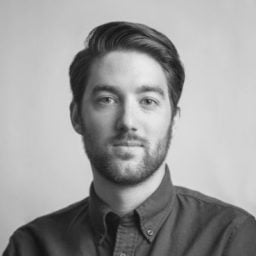Four North American museums have abruptly cancelled a touring exhibition of masterworks from the Prince of Liechtenstein’s collection, citing the royal family’s use of “forced labor” during World War II. Among those unhappy about the decision: Liechtenstein.
With nearly 100 works of European art spanning the Renaissance to the 19th century, the show’s offerings were culled from the Liechtenstein Museum and the collection of its owners, the Princely Family of the sovereign European state of Liechtenstein. The collection includes celebrated canvases by Peter Paul Rubens and Lucas Cranach the Elder, arms and armor, and crown jewels, among many treasures.
The National Gallery of Canada in Ottawa, where “The Princely Collections, Liechtenstein: Five Centuries of European Painting and Sculpture” was scheduled to open first on June 5, pointed to a 2005 report on the state’s wartime activities to explain its decision.
Commissioned by Liechtenstein at the request of the World Jewish Congress, the report revealed information “relating to the use of forced labor on estates owned by the Liechtenstein royal family during the war,” the National Gallery of Canada explained in a statement to Artnet News. After having its attention drawn to the report, the museum decided to withdraw from hosting the show.
The report did not determine that any objects in the Liechtenstein collections were stolen during the war, nor did it prove that the princes of Liechtenstein were aware of the forced labor at their estate during the 1940s. It did, however, conclude that as owners of the estate, the princes of Liechtenstein were nonetheless responsible for the events that took place.
“As a result of the expression of concerns about these issues, there was consensus that the exhibition should not proceed as it may have caused both confusion and offense,” said the National Gallery of Canada.
The museum declined to expand upon the meaning of the phrase “forced labor,” or to specify why it initially agreed to the exhibition since the report in question was published 15 years ago. According to the report, Jewish inmates were hired from the Strasshof concentration camp near Vienna to work on agricultural estates owned by the family of the late Prince Franz Joseph II, who presided over the small Alpine country until his death in 1989.
Those in charge of the Liechtenstein Collections seem to have been taken by surprise by the 11th-hour decision. “This late cancellation, after years of diligent and amicable cooperation in preparation of the exhibition, is rather disappointing, and the reasoning provided by the National Gallery of Canada belies the fact that all the pertinent historical information has been publicly and readily available for well over a decade even before any deliberations regarding this exhibition had commenced,” Dr. Johann Kräftner, director of the Liechtenstein Collections, said in a statement to Artnet News.
Kräftner seemed to suggest that outside pressure is what led to the show’s cancellation, rather than the subject of the report. “In light of the fact that this report does not provide any findings that could reasonably be understood to support the cancellation of the exhibition,” he said, “it is difficult to avoid the impression that other extraneous considerations, none of which would seem to relate to the Princely Family of Liechtenstein or the subject matter of the mentioned report, have led to the regrettable cancellation decision by the National Gallery of Canada.” (He did not elaborate.)
Following the exhibition’s scheduled run in Ottawa, it was due to go on view at the Seattle Art Museum from October 2020 to January 2021; the Kimbell Art Museum in Texas from February to May 2021; and finally at the National Gallery of Art in Washington, DC, from June to September 2021. All three museums followed the National Gallery of Canada’s decision to cancel the show.
“After recently learning of published reports regarding the historical record of Liechtenstein, and after careful consideration, the National Gallery of Art has concluded that it cannot participate in the exhibition,” a representative from the DC museum told Artnet. “The gallery’s decision was solely for itself, and it does not speak for any other institution.”
Representatives from the Kimbell Art Museum, and the Seattle Art Museum did not immediately respond to request for comment.





